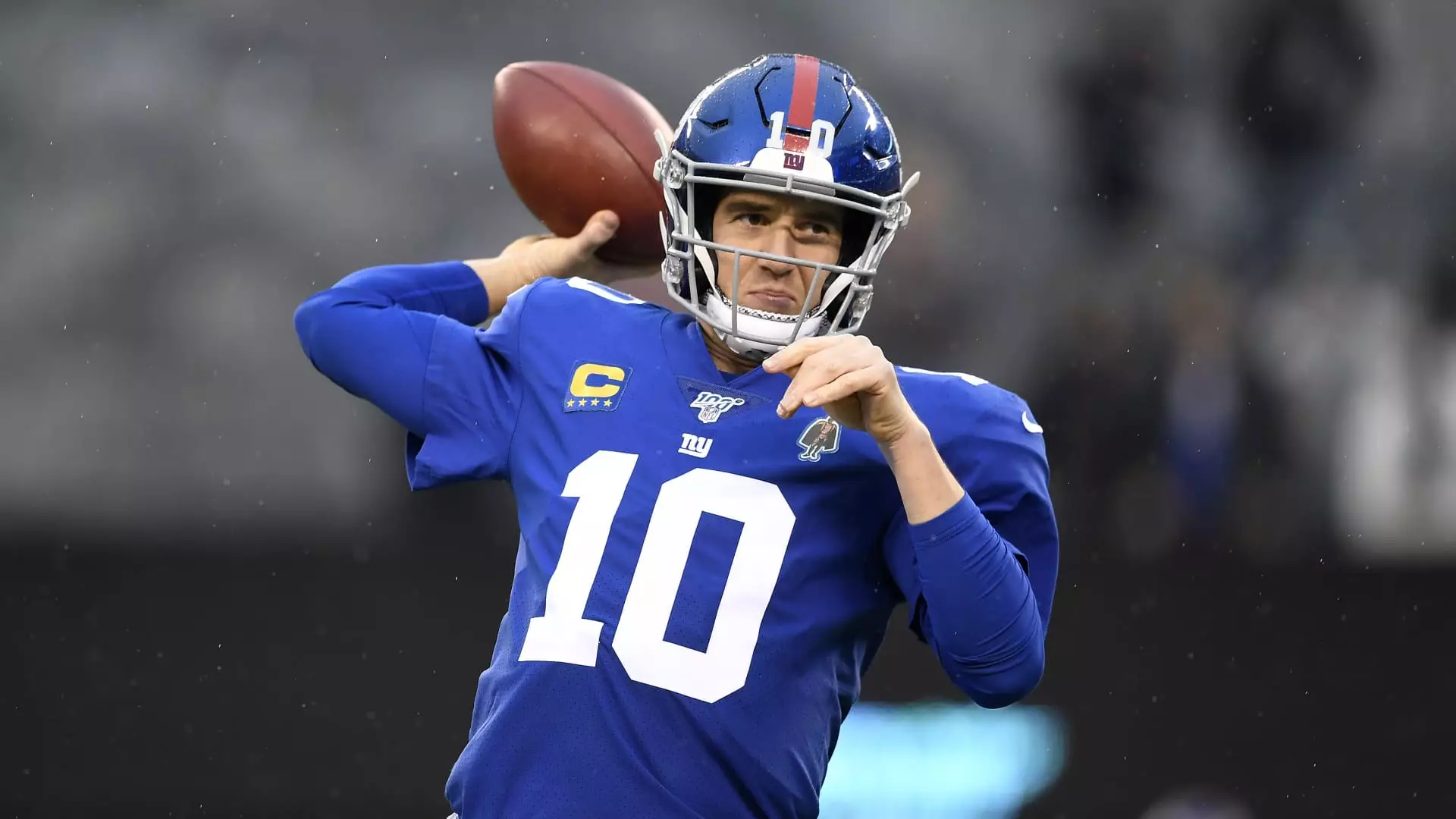In the glitzy realm of professional sports, the soaring valuations of NFL teams have become emblematic of a larger economic paradox. Eli Manning’s public admission that he is “priced out” of owning a stake in his former team underscores a disturbing truth: the dream of a sports franchise ownership is increasingly inaccessible to even the most dedicated and financially capable individuals. The notion that a 1% stake in the New York Giants could be valued at $100 million, given the team’s estimated worth skyrocketing past $7 billion, reveals the distorted priorities at play. This inflated valuation isn’t just a reflection of the team’s on-field success but a symptom of an insatiable corporate greed that views sports franchises as lucrative commodities rather than community assets.
As NFL team valuations continue their relentless ascent, the once-aspirational goal of ownership becomes a fantasy for all but the ultra-wealthy. Manning’s candid remark exposes a fundamental flaw: the ranks of passionate minority owners are being thinned by hyper-valuation, turning what might have once been a symbol of personal achievement into an exclusive club for the super-rich. This status quo fosters an environment where financial barriers supersede genuine interest or community ties, creating a barrier between fans and the ownership of their beloved teams.
The Unsustainable Rise of Franchise Valuations and Its Consequences
The recent multi-billion dollar sales and valuations, like the Eagles selling a minority stake at an $8.3 billion valuation or the Lakers flirting with a $10 billion valuation, showcase an overheated market driven by speculative investment rather than sustainable growth. While these figures sound impressive, they distort the true value of a franchise, inflating expectations and fueling an arms race among investors eager to capitalize on the booming sports industry. The result is a landscape where ownership stakes are less about fostering team success or local community development and more about the exponential appreciation of franchise assets.
This phenomenon raises serious questions about the long-term viability of such valuations. Are they grounded in the teams’ actual revenue-generating potential, or are they bubble-like constructs that could burst under the weight of unsustainable expectations? The danger lies in creating an economic environment where ownership becomes a symbol of wealth rather than a platform for community engagement and positive influence. For individuals like Manning, who no longer see ownership as a realistic or desirable pursuit, this environment exacerbates feelings of alienation and disillusionment.
The Ethical Implications of Elite Sports Investment
Beneath the veneer of billion-dollar valuations lies a troubling ethical issue: the concentration of sports ownership within the realm of the ultra-wealthy. Manning’s reluctance to pursue a stake in the Giants, citing conflicts of interest and concerns over professional responsibilities, highlights the broader tension between commercial interests and the social role of sports teams. When ownership is predominantly held by billionaires or private equity firms, it undermines the democratic spirit that once characterized community-based sports.
It becomes increasingly evident that these financial machinations are less about fostering athletic excellence or supporting fans and more about maximizing profit margins. The urban and suburban communities that have historically nurtured local teams risk becoming passive spectators while the franchise’s value is driven up by corporate maneuvers. Manning’s decision reflects a conscious move away from a system that privileges wealth over genuine commitment—a sign that the system is fundamentally flawed and in need of reform.
The story of Eli Manning’s withdrawal from team ownership symbolizes a broader critique of modern sports capitalism. It underscores how greed and inflated valuations have rendered franchise ownership an elite privilege, inaccessible to even the most devoted fans and former athletes. For a center-leaning liberal perspective, this situation raises urgent questions about economic inequality, social responsibility, and the true purpose of sports in society. The current model incentivizes profit over community, alienation over engagement, and exclusivity over inclusivity.
In dismantling this distorted paradigm, there is a compelling need for reforms that democratize ownership structures, promote transparency, and prioritize the social value of sports organizations. Without such changes, the cultural fabric that once made sports a unifying force will continue to fray, replaced by a landscape where the true spirit of athletic community is overshadowed by greed and inflated valuations. Eli Manning’s decision may be a personal choice, but it also serves as a stark warning about the health of a system increasingly driven by the bottom line rather than the collective good.

